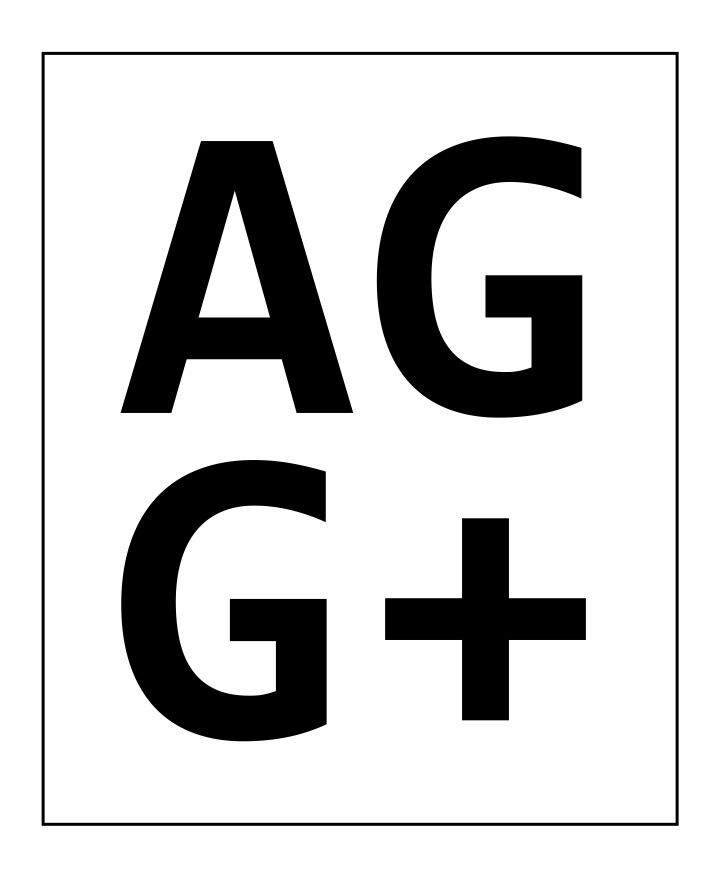EDITORIAL POLICY
Peer Review Process
Manuscripts submitted to the AGG+ are subjected to rigorous peer review by the responsible editor and at least two anonymous and experienced referees selected by the Editorial Board.
Manuscripts are sent out for review electronically, and all correspondence takes place via e-mail, through the website.
Peer reviewers are asked to complete the review form, where they report their opinion on a number of evaluation criteria pertinent to the scientific and formal aspects of the manuscript. Reviewers’ comments and the completed review form will then be analysed by the assigned editor.All relevant information will be forwarded to the corresponding author to consider the required modifications and responses. The revised manuscript will then be re-evaluated by the editor, and the final decision will be communicated to the corresponding author.
Manuscripts may be rejected directly by the Chief Editor if considered to be out of scope or scientifically below the quality standards required by the journal. Poor English is also a reason for an instant reject.
Authors are given a maximum of four weeks for revision.
Publication Frequency
The AGG+ is published twice per year, since 2013. All articles are assigned a DOI number (Digital Object Identifier) whereby they become searchable and citable.
COPYRIGHT NOTICE
Authors who publish in the AGG+ agree to the following terms:
a) AGG+ retains copyright and the authors grant the journal right of first publication with the work simultaneously licensed under a Creative Commons Attribution License that allows others to share the work with an acknowledgement of the work's authorship and initial publication in this journal.
b) Authors are able to enter into separate, additional contractual arrangements for the non-exclusive distribution of the journal's published version of the work (e.g., post it to an institutional repository or publish it in a book), with an acknowledgement of its initial publication in this journal.
c) Authors are permitted and encouraged to post their work online (e.g., in institutional repositories or on their website) prior to and during the submission process, as it can lead to productive exchanges, as well as earlier and greater citation of published work (See The Effect of Open Access).
POLICY ON POST-PRODUCTION CORRECTIONS
We expect authors to inform the journal’s Editorial Office of any errors of fact they have noticed (or have been informed of) in their article once published. Corrections are made at the journal’s discretion.
The AGG+ has a duty to maintain the integrity of the scientific record. Therefore, minor corrections that do not affect the scientific understanding of the paper (for example formatting or typographical errors or preference of wording) may be rejected.
If a correction is done, a correction notice will be printed in the next available issue. The online version of the article will link to the correction notice, and vice versa.
PRIVACY STATEMENT
The names and e-mail addresses entered in this journal site will be used exclusively for the stated purposes of this journal and will not be made available for any other purpose or to any other party.
Please read the GDPR information here.
Digital Archiving Policy
AGG+ is committed to the permanent availability and preservation of scholarly research and to ensure accessibility by converting and upgrading digital file formats to comply with new technology standards. We work in partnership with Portico to assure digital archive.
Portico is a not-for-profit service committed to the preservation of digital publications, including e-journals, e-books, and digitized historical collections.
Founded in 2002, Portico (portico.org) has built a trusted and reliable community-based “dark” archive. From the beginning, Portico engaged the academic community—including libraries and the scholarly publishing industry—to develop a robust digital preservation service. Portico understands the preservation needs of these groups, and is built on the concept that each must support the creation and maintenance of the archive. Portico is certified as a “trustworthy digital repository” by the Center For Research Libraries (CRL) and is a service of the not-for-profit organization ITHAKA (ithaka.org).
